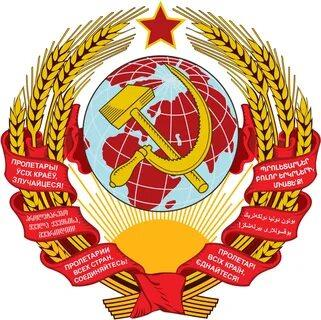The 108th Anniversary of the Great October Revolution: lessons for today
On the 108th anniversary of the social phenomenon set in motion on October 25 (November 7), 1917—when Russia was using the Gregorian calendar—we pause to note the achievements of one of the most significant events of the 20th century. Unlike the bourgeois revolutions that preceded it, such as the American Revolution of 1776 and the French Revolution of 1789, which ran their course relatively quickly, the October Revolution initiated a lasting transformation. By the time the American and French revolutions reached their 108th anniversaries, entrenched systems of exploitation had largely canceled out the “inalienable rights” of the working people.
Lenin’s Realism and the First Victory
On the fourth anniversary of the October Revolution, Lenin captured its essence with characteristic realism:
“The first victory is not yet the final victory, and it was achieved by our October Revolution at the price of incredible difficulties and hardships, at the price of unprecedented suffering accompanied by a series of serious reverses and mistakes on our part. How could a single backward people be expected to frustrate the imperialist wars of the most powerful and most developed countries of the world without committing mistakes? We are not afraid to admit our mistakes and shall examine them dispassionately in order to learn how to correct them. … For the first time in hundreds and thousands of years, the promise to reply to war between the slave-owners by a revolution of the slaves directed against all the slave-owners has been completely fulfilled and is being fulfilled despite all difficulties. We have made the start. When, at what date and time, and the proletarians of which nation will complete the process is not important. The important thing is that the ice has been broken, the road is open, the way has been shown.” — Lenin, Selected Works, Vol. III, p. 641
All the leading figures of the October Revolution have long passed, but as symbols and influences, they remain immortalised. Lenin, acknowledged even by bourgeois historians as one of the most influential political figures of the 20th century, has shaped global thought through his writings and theories. The 108th anniversary of the revolution is therefore not just about nostalgia or the observance of a fixed point in time. Instead, it marks the launch of a social force that continues to resonate.
The October Revolution and Global Transformation
The Great October Revolution was unique not only because the people overthrew the Tsarist regime, but because it was led by a vanguard party imbued with scientific theory and determined to build socialism. Unlike spontaneous uprisings elsewhere, it was carefully planned, executed, and grounded in a clear understanding of social forces. Over the past century, the revolution has confirmed the correctness of Leninist analysis and decisions.
Social Revolution and National Liberation
The association of socialist revolution with struggles for national liberation has profoundly shaped the 20th century. Ten years after the revolution, then-ANC President J.T. Gumede remarked, after visiting the USSR: “I saw a new Jerusalem,” praising the October Revolution. Similarly, the International, a journal of the International Socialist League (predecessor of the Communist Party of South Africa), noted on December 7, 1917:
“Developments in Russia baffle comment. Exultation admits of no commentary. What we are witnessing is a worldwide commonwealth of labour.”
In Central Asia, the October Revolution inspired a bitter struggle for emancipation. Foreign interventions, including by the British, sought to preserve colonial and feudal systems, but the revolutionary movement prevailed. The experience of Central Asia provides several key lessons. Multinational populations achieved unity in struggles against colonialism and social oppression while developing as distinct national entities with the right to self-determination. National liberation coincided with socialist revolution, producing both social and political emancipation. This process allowed a leap from pre-capitalist to socialist relations of production without passing through a prolonged capitalist stage. The lack of a native proletariat was compensated by close alliances with the Russian working class and state, which provided material support, training, and resources for social, agrarian, and cultural development.
The October Revolution and the End of Colonialism
The October Revolution’s influence extended rapidly to the colonies. In 1924, the Chinese Revolution looked to the USSR for inspiration and assistance. Revolutionary consciousness in colonies spurred the formation of Marxist-Leninist parties in China, Iran, Egypt, South Africa, Turkey, and Morocco. In Morocco, for instance, a five-year war against Spanish colonial rule in 1921 was fueled by the revolutionary example of Russia.
Between the world wars, colonial territories witnessed enormous revolutionary ferment. Workers, peasants, and nationalist intellectuals sought guidance from the USSR. As Lenin observed:
“No force on earth is capable of taking from us the principal gains of our revolution, for they are no longer ours but have become the gains of world history.”
Echoing these sentiments, J.B. Marks, national chairman of the SACP, stated on the 50th anniversary of the October Revolution:
“In a very real and concrete sense, we of Africa and all the world’s fighters for national liberation understand that these gains are ours as well, and we are standing up to claim them.”
The USSR’s support played a critical role in the success of national liberation movements in China, Vietnam, Laos, Kampuchea (Cambodia), Korea, Algeria, Yemen, Angola, Mozambique, Guinea-Bissau, Zimbabwe, Namibia, El Salvador, South Africa, and Western Sahara. The Cuban Revolution’s success in the United States’ backyard further demonstrates the global impact of the October Revolution.
Imperialism, Counter-Revolution, and Lessons for Today
While socialist countries generally avoided exporting revolution by force, imperialist powers have repeatedly intervened militarily to suppress progressive or anti-imperialist governments. Examples include Chile, Afghanistan, Libya, Ethiopia, Guatemala, Grenada, Chad, Indonesia, and Fiji. Fear of the October Revolution’s ideas continues to shape Western foreign policy, as seen in sanctions against Cuba and attempts to isolate Russia.
For Zimbabwean communists inspired by the October Revolution, these lessons are clear: the struggle for liberation and socialism continues. The revolution teaches the importance of organisation, theoretical clarity, international solidarity, and the persistent fight against imperialism and exploitation.
Conclusion
The 108th anniversary of the Great October Revolution is more than a historical commemoration. Rather, it is a reminder of the power of organised, conscious social movements. Its legacy is evident not only in the former USSR but across the world, in struggles for national liberation and socialism. For today’s communists, it is a call to continue the unfinished work of liberation, to strengthen organisation, and to advance the ideals of social justice and equality.




